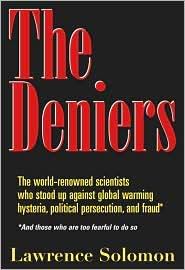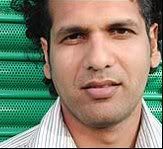
The first time I became aware of the concept of "tweenagers", which is apparently the name for children between infancy and the teens, was when Minima bothered us so much about the DVD for
High School Musical that we bought her it, and I've been regretting it ever since. As if that weren't bad enough, Maxima, the turncoat, has come to like the damn thing and, having taken Minima to the third movie, now plans to see it again with her.
Infamy, infamy, they've all got it in for me! (Sorry, I don't think it works in a US accent.)
So it was with some trepidation that I sat down with Minima to watch the 2007 version of
Hairspray, starring John Travolta as the main character played by Divine in the 1988 original.
Although the transvestite actor - real name Harris Glenn Milstead - had shorn much of the camp aggression from his stage persona for the original, I still felt some discomfort at my daughters watching him and perhaps thinking his other films might be "safe". So we got the 2007 DVD and, to my amazement, I saw that there was a difference between this and the
High School Musical franchise: this was good.
The songs were great, so much so I wouldn't object to Minima getting the album and playing it every hour that God sends, as she does at the moment with the
HSM soundtracks. (Although the chorus of
Welcome to the Sixties reminded me slightly of that of
Heatwave, sung in 1965 by
Martha Reeves and the Vandellas.)
The plot of
Hairspray is far more complex than that of the typical fare served up for tweenies. First of all there's the standard girl-falls-for-boy mechanism, but the movie - like the original and the stage play - also deals with discrimination. There's racial discrimination, which is at the centre of the film; the struggle to desegregate a teen dance show hosted by Corny Collins, a local celebrity who also opposes segregation on the basis of race but is opposed by former Miss Baltimore, Velma von Tussle (Michelle Pfeifer), an out-and-out racist who opposes integration, and is determined to experience her ambitions vicariously in the dancing career of her spoilt daughter Amber.
The film gave me an opportunity to relate to the girls a story my Mum told me about when she was living in New York in around the same time as the film is set. She was in Woolworths and went to the restaurant; one part being packed, she went to the emptier section - and was told to move, as this was reserved for coloured people. I don't know if this was before or after an incident on 1960 when four black people -
Franklin McCain, David Richmond, Joseph McNeil and Ezell Blair - ordered coffee in the same restaurant at 4pm and remained unserved until it closed at 5pm. This developed into a sit-in and, although there were attacks on the protesters, they stayed true to Martin Luther King's doctrine of non-violent protest.
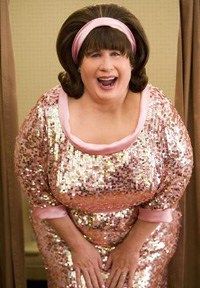
There was also a sub-plot concerning discrimination on the grounds of obesity. John Travolta wore a fat-suit for the film to play protagonist Tracy's mother, who I gather lost her figure after having Tracy. Travolta brings all his considerable acting talent to the fore to make his character believable, but the thing is, I don't think the characters of Edna and Tracy Turnblad are all that fat.
Possibly my own girth plays a part in this judgement - I remember a job on buses that were converted into moving hospital wards where I was once referred to as "the wee thin guy from Glasgow", but that was many years ago. When Maxima put on a few pounds after having the girls, I came out in sympathy. Big time.
Or maybe US singer/songwriter John Mellencamp got it right when he said on Bob Harris' country show on BBC Radio 2 that the first time he came to Great Britain, he thought the people looked fitter, then added "now you all look like us".
Mellencamp was on the show to promote his new album,
Life, Death, Love and Freedom. One of the songs on it is called
Jena, after a town in Louisiana where in 2006 racial tensions at a secondary school spilled over when empty nooses were hung from a tree, a situation which culminated in a group of black youths being charged with assaulting a white youth. I looked it up on
Wikipedia and just got more confused, although last year Townhall's
Larry Elder tried to unravel what was going on.
In the UK, we had the awful murder of Stephen Lawrence by a group of white teenagers in 1993, regarding which nobody has been successfully prosecuted. At the time the
Daily Mail took the unusual step of accusing five teenagers of the murder before any prosecution, including the
Acourt brothers - which may have contributed to their acquittal. The subsequent investigation into the incident and its investigation, chaired by retired High Court Judge Sir William MacPherson, led to the production of a
report which claimed to identify a culture of
institutional racism in the Metropolitan Police Force (the "Met") which polices London and whose Commissioner is the most senior police officer in Britain.
In a recent
letter to the
Spectator, however, Norman Dennis, Director of Community Studies of the think-tank
Civitas, criticised the "uncritical reception" of the report and it's "pernicious influence on policing". There certainly appears to be a "
civil war" based on race lines at the Met right now, with Assistant Commissioner Tarique Ghaffur having been suspended after he accused the Commissioner, Sir Ian Blair, of racism in a press conference; Commander Dr Ali Dizaei has also been
suspended while several claims against him are investigated.
After Dr Dizaei's suspension, the
Metropolitan Black Police Association severed links with
senior managers, and as London's Mayor Boris Johnson launches an enquiry into racism in the force, the MBPA stated it would no longer be encouraging black and Asian people to join the Met. It's a shame to see it opposing the Met in this way, and a greater shame that if you are white and heterosexual in certain settings, then you have nobody to speak for you.
One thing the MacPherson Report stated was that the approach of affecting to be "colour blind" was "flawed". Which brings me back to
Hairspray, in particular a line sung by Tracy's friend Seaweed in
Run and Tell That:
I can't see
Why people look at me
And only see the color of my face
yes they do
And then there's those
That try to help, god knows
But have to always put me in my place
Now I won't ask you to be color blind...
It was good to see that the concept of the "melting pot" is fading from the minds of both judges and lyricists. It's still present in
education, however, so perhaps it's not as surprising as it is depressing to see a statement on the MBPA website informing the world that the old socialist concept of being "politically black" is still alive and well: "
The term black does not relate to skin colour but is used to describe all people of African, African Caribbean or Asian origin."
Eh? So are/were Freddy Mercury, Ian Smith, Kim Jong-Il, Deng Xiaoping and the Dalai Lama black? Clarence Sholé Johnson, Professor of Philosophy in the Middle Tennessee State University, summarises the concept in an
essay entitled
(Re)Conceptualising Blackness and Making Race Obsolescent:
there is no incongruity in the idea of a person being pigmentationally white and politically black, or of a person being pigmentationally black and politically white. All that it means to say that a person is politically black is that the person is anti-status quo; that she or he is ideologically committed to de-centering whiteness; that she or he is oppositional or counterhegemonic.
I'm reminded of Barack Obama's claim to be moving towards post-racial politics, but he was monumentally undermined by some of his supporters who called him a
lightworker -

somebody who can "usher in a new way of being on the planet", seemingly because they can't conceive that an ordinary black bloke could run for President.
Anyway, as Seaweed's Mum (Queen Latifah) states in the show-stopping spectacular finale, "it's time to wrap this mutha up!" It's good to see that such rich seams of discussion can be mined through watching
Hairspray, as well as having a thoroughly good time. Hilarity is a wonderful initial strategy to disarm discrimination, far better than a thousand sociopathic soap-operas; and if Minima and Minora accuse me of going against the grain of received opinion that being equal is equivalent to being the same, well then, "Tosh!" I shall reply - "in my counterhegemonic stance I'm just being politically black." Or is that ideologically obese?

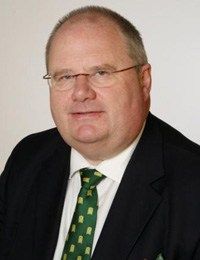 s we had some shepherd's pie, following which Eric Pickles MP, Shadow Secretary of State for Local Government spoke. In a broad Yorkshire accent he iterated the point David Cameron has made, that we're not Ukip-lite, although the country, he said, needs our unique view on Europe.
s we had some shepherd's pie, following which Eric Pickles MP, Shadow Secretary of State for Local Government spoke. In a broad Yorkshire accent he iterated the point David Cameron has made, that we're not Ukip-lite, although the country, he said, needs our unique view on Europe.

 There was also a sub-plot concerning discrimination on the grounds of obesity. John Travolta wore a fat-suit for the film to play protagonist Tracy's mother, who I gather lost her figure after having Tracy. Travolta brings all his considerable acting talent to the fore to make his character believable, but the thing is, I don't think the characters of Edna and Tracy Turnblad are all that fat.
There was also a sub-plot concerning discrimination on the grounds of obesity. John Travolta wore a fat-suit for the film to play protagonist Tracy's mother, who I gather lost her figure after having Tracy. Travolta brings all his considerable acting talent to the fore to make his character believable, but the thing is, I don't think the characters of Edna and Tracy Turnblad are all that fat. somebody who can "usher in a new way of being on the planet", seemingly because they can't conceive that an ordinary black bloke could run for President.
somebody who can "usher in a new way of being on the planet", seemingly because they can't conceive that an ordinary black bloke could run for President.

 In order to survive, any extremist organisation has to turn public opinion against the group from which it recruits in order that some individuals in this group will become radicalised and provide the extremists with an intake.
In order to survive, any extremist organisation has to turn public opinion against the group from which it recruits in order that some individuals in this group will become radicalised and provide the extremists with an intake. the question that Luke 18:8 tells us Jesus asked his disciples during a discourse in the house of the Pharisee where he cured the man with the dropsical hand (starting 14:1) - "when the Son of Man comes, will he find any faith on earth?". She went on to write a rather amusing article which she ended by proposing that thousands of atheists club together to buy an advert on a bus that would say, "
the question that Luke 18:8 tells us Jesus asked his disciples during a discourse in the house of the Pharisee where he cured the man with the dropsical hand (starting 14:1) - "when the Son of Man comes, will he find any faith on earth?". She went on to write a rather amusing article which she ended by proposing that thousands of atheists club together to buy an advert on a bus that would say, "

 n abortion because the Human Fertilisation and Embryology Bill is not all about abortion, but the sort of tortured and twisted situationalist ethics that fuel abortion legislation have been let out of the box to inform the mindset of laws that are drafted to curtail the right to life of people from conception to assisted death. But abortion, the original cause, is so important that Harriet Harman, Leader of the House of Commons, is drafting an amendment to the HFE Bill that would prevent any amendments to lower the abortion limit. She seems to think that she is standing up for a woman's right to do what she wants with her body.
n abortion because the Human Fertilisation and Embryology Bill is not all about abortion, but the sort of tortured and twisted situationalist ethics that fuel abortion legislation have been let out of the box to inform the mindset of laws that are drafted to curtail the right to life of people from conception to assisted death. But abortion, the original cause, is so important that Harriet Harman, Leader of the House of Commons, is drafting an amendment to the HFE Bill that would prevent any amendments to lower the abortion limit. She seems to think that she is standing up for a woman's right to do what she wants with her body. d Speaker of the House of Commons Michael Martin as the HFE Bill sails down the river of legislation like a ship bursting with buccaneers. I would add that Ruth Kelly deserves all our prayers as she faces what is possibly the most difficult decision of her career. All I can say to her is that the best political survivors of the present Labour Party will be those who dared to defy the party line; many of the rest will sink with the ship.
d Speaker of the House of Commons Michael Martin as the HFE Bill sails down the river of legislation like a ship bursting with buccaneers. I would add that Ruth Kelly deserves all our prayers as she faces what is possibly the most difficult decision of her career. All I can say to her is that the best political survivors of the present Labour Party will be those who dared to defy the party line; many of the rest will sink with the ship.
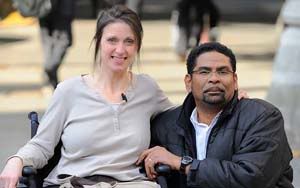
 Dignitas has long been the subject of
Dignitas has long been the subject of 




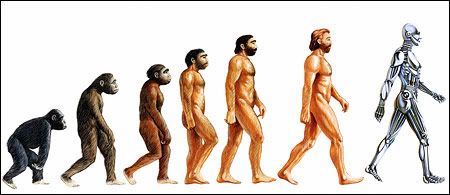
 amn things - minding my own business this evening, when the author of a book I'm reading came on
amn things - minding my own business this evening, when the author of a book I'm reading came on  Most geneticists have to deal with the fact that their science had inauspicious origins, and Jones deals with this frankly in the introduction. Social Darwinism was founded largely by liberal Victorian thinker Herbert Spencer and Francis Galton, Charles Darwin's half-cousin. Through Galton's influence, the movement - which mortified Darwin - morphed from letting evolution carry on without interferences such as healthcare and philanthropy into eugenics, which was very much involved with interfering with evolution. The pseudo-science served as a cover for figures from all parts of the political spectrum who were concerned for the future of the white race - whatever race is apart from societally-determined constructs based on arbitrary classification of features, mainly (but not exclusively) skin colour. Jones relates an anecdote towards the end of the book:
Most geneticists have to deal with the fact that their science had inauspicious origins, and Jones deals with this frankly in the introduction. Social Darwinism was founded largely by liberal Victorian thinker Herbert Spencer and Francis Galton, Charles Darwin's half-cousin. Through Galton's influence, the movement - which mortified Darwin - morphed from letting evolution carry on without interferences such as healthcare and philanthropy into eugenics, which was very much involved with interfering with evolution. The pseudo-science served as a cover for figures from all parts of the political spectrum who were concerned for the future of the white race - whatever race is apart from societally-determined constructs based on arbitrary classification of features, mainly (but not exclusively) skin colour. Jones relates an anecdote towards the end of the book:
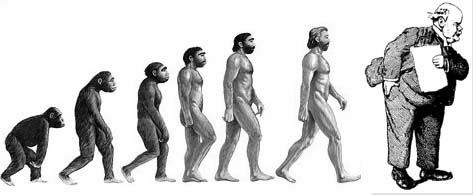
 Yesterday's
Yesterday's 



